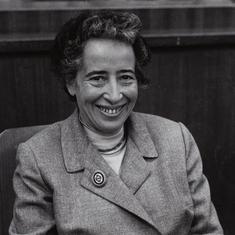Journalists protest against restriction on movement in Parliament
On Monday, reporters were removed from one of the entrances where they usually interact with MPs, the Press Club of India said.

Journalists staged a protest outside Parliament on Monday after being stopped from moving around on the premises to to talk to legislators, the Press Club of India said on social media.
Reporters were removed from Parliament’s Makar Dwar where they usually talk to MPs, according to the press body. Makar Dwar is one of the entrances to the new parliament building.
A video shared by the Press Club of India showed journalists waiting in a room outside Parliament building on Monday.
Rahul Gandhi, the Leader of Opposition in the Lok Sabha, raised the matter with Speaker Om Birla.
“Sir, you have made another chakravyuh,” Gandhi said during the discussion in the Lower House about the Union Budget for the financial year 2024-’25. “You have locked the media in a cage. Please let them out.”
The chakravyuh, as depicted in the Hindu epic Mahabharata, is a military formation used to surround adversaries.
“Bichare [helpless] media wale hai, sir,” Gandhi said.
“They are not bichare,” Birla replied. “Don’t use the word ‘bichare’ for them [media].”
Gandhi responded: “The non-bichare media has requested me to urge you to let them out.”
Birla asked Gandhi to raise the matter with him in the speaker’s chamber. “Don’t question the arrangements of the House inside the House,” Birla added.
Birla met protesting reporters on Monday evening and promised to resolve all matters relating to restrictions on movement and the media’s coverage of Parliament, ANI reported.
बेचारे मीडिया वाले
— Aadesh Rawal (@AadeshRawal) July 29, 2024
बेचारे नहीं है वो
Not बेचारे मीडिया वाले pic.twitter.com/11MsthMRLu
Journalists stage protest in Parliament against restrictions on their movement in the premises and also they were removed to stand in front of “Makar Dwar”. At this Dwar, they used to interact with Parliamentarians from all sides
— Press Club of India (@PCITweets) July 29, 2024
We demand lifting of restrictions imposed on them pic.twitter.com/Trp2GfDczq
This came weeks after the Editors Guild of India urged Birla and Rajya Sabha Chairperson Jagdeep Dhankhar to remove the pandemic-era restrictions on journalists that impeded their ability to cover proceedings in Parliament.
On July 1, the guild noted that the practice of limiting the number of journalists with access to both Houses, including those with permanent accreditation, came into force when the Covid-19 protocols were put in place.
The guild said that although 1,000 journalists from both print and electronic media were accredited to cover the proceedings of both Houses, “only a fraction of them are provided access”.
The letter said that the decision to provide “unfettered access to journalists” has been in practice since the first Parliament session in 1952.
“The objective was to keep the people abreast with the work of their representatives, developments inside the House and dynamics outside, through media, which is vital in a parliamentary democracy,” the guild had said.









